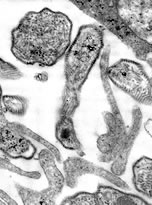Read and report vaccine reactions, harassment and failures.
Mumps

- Mumps is a contagious viral infection. Symptoms begin with a headache, muscle aches, tiredness, and loss of appetite. A stiff is a sign that aseptic meningitis (inflammation of the lining of the brain) may have developed, which is a rare complication of mumps ;
- Mumps virus can be found in the saliva, throat and urine of an infected person. The virus is usually spread through the air by respiratory droplets or by contact with the saliva of an infected person :
- The time between when a person comes into contact with a person infected with mumps and first begins to experience symptoms of mumps (incubation period) ranges from 12 to 25 days . The illness lasts for an average 7-10 days, but may last longer before symptoms completely disappear ;
- The typical “signature” physical sign of mumps is visible swelling of one or both sides of the face under the ears and chin. Males, who are past puberty, can experience pain and extreme swelling of the testes and rarely, become sterile. Mumps is very rarely fatal;
- There is no specific treatment for mumps except alleviation of symptoms with rest, pain relievers and cool compresses.
- Three mumps containing vaccines are available in the U.S. Two vaccines, MMRII and PRIORIX, contain live attenuated measles, mumps, and rubella virus. The third, ProQuad (MMR-V), contains live attenuated measles, mumps, rubella, and varicella virus. PRIORIX, ProQuad, and MMRII were developed using aborted fetal cell lines. The CDC recommends that children get two doses of a Mumps containing vaccine with the first dose given between ages 12-15 months, and the second dose given between ages 4-6 years. All mumps vaccines are contraindicated during pregnancy.
- Common side effects from the MMR or MMR-V vaccine include low-grade fever, skin rash, itching, hives, swelling, reddening of skin, and weakness. Reported serious adverse reactions following MMR and MMR-V vaccination include seizures, brain inflammation and encephalopathy; thrombocytopenia; joint, muscle and nerve pain; gastrointestinal disorders; measles like rash; conjunctivitis and other serious health problems. A vaccine strain infection following vaccination may be the cause of the full body rash.
- Since 2006, multiple outbreaks of mumps have occurred in the U.S. and abroad in vaccinated children and young adults, occurring often on college campuses. In 2017, the CDC recommended a third dose of a mumps containing vaccine to be administered in the event of an outbreak. Numerous studies examining mumps outbreaks that have occurred in highly vaccinated populations have experts suggesting that both the waning of vaccine induced immunity and an ineffective mumps vaccine may be to blame.
- In 2010, new information questioning the efficacy of the mumps portion of MMR vaccine emerged when two former Merck employees filed a lawsuit alleging the company altered testing results and studies to make the mumps vaccine in MMR appear to be more effective than it really is in preventing mumps infection. Court proceedings on the case are still pending.
- As of April 1, 2024, there had been 1,198 claims filed in the federal Vaccine Injury Compensation Program (VICP) for injuries and deaths following mumps-containing vaccination, including 66 deaths and 1,132 serious injuries.
- Using the MedAlerts search engine, as of March 29, 2024, there have been 111,951 reports of mumps vaccine reactions, hospitalizations, injuries and deaths following mumps vaccination made to the federal Vaccine Adverse Events Reporting System (VAERS), including 524 related deaths, 8,489 hospitalizations, and 2,140 related disabilities.
- Measles, Mumps and Rubella Vaccine, Live (MMRII). Product Insert & Licensing Information
- Measles, Mumps and Rubella Vaccine, Live (PRIORIX). Product Insert & Licensing Information
- Measles, Mumps, Rubella and Varicella Virus Vaccine Live (ProQuad). Product Insert & Licensing Information
- CDC on Mumps
- CDC on Mumps Vaccination
- Mumps Vaccine Information Statement (VIS) MMR
- Mumps Vaccine Information Statement (VIS) MMR-V (ProQuad)
Vaccine Reaction Symptoms & Ingredients
Our Ask 8, If You Vaccinate webpage contains vaccine reaction symptoms and more.
Search for Vaccine Reactions
NVIC hosts MedAlerts, a powerful VAERS database search engine. MedAlerts examines symptoms, reactions, vaccines, dates, places, and more.
Reporting a Vaccine Reaction
Since 1982 NVIC has operated a Vaccine Reaction Registry, which has served as a watchdog on VAERS. Reporting vaccine reactions to VAERS is the law. If your doctor will not report a reaction, you have the right to report a suspected vaccine reaction to VAERS.
IMPORTANT NOTE: NVIC encourages you to become fully informed about Mumps and the Mumps vaccine by reading all sections in the Table of Contents, which contain many links and resources such as the manufacturer product information inserts, and to speak with one or more trusted health care professionals before making a vaccination decision for yourself or your child. This information is for educational purposes only and is not intended as medical advice.



